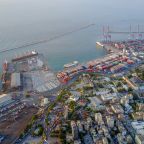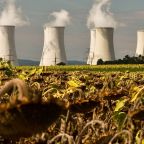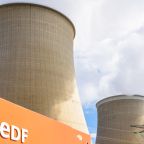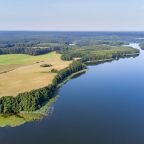Search results

On 4 August 2020, a devastating explosion occurred in the port of Beirut, the cause of which was the improper storage of chemicals. After Germany had already supported Lebanon in the management of chemicals in the aftermath of this explosion, the Lebanese authorities approached Germany with an additional request for support in the retrieval and safe storage of radioactive waste. Within the framework of a cooperation project funded by the Federal Ministry for the Environment (BMUV), the responsible Lebanese authorities are supported by experts from the BMUV and an interdisciplinary GRS team from the departments Radiation Protection and Security.

On 4 August 2020, a devastating explosion occurred in the port of Beirut, the cause of which was the improper storage of chemicals. After Germany had already supported Lebanon in the management of chemicals in the aftermath of this explosion, the Lebanese authorities approached Germany with an additional request for support in the retrieval and safe storage of radioactive waste. Within the framework of a cooperation project funded by the Federal Ministry for the Environment (BMUV), the responsible Lebanese authorities are supported by experts from the BMUV and an interdisciplinary GRS team from the departments Radiation Protection and Security.

In connection with the current global warming, periods of heat and drought are also occurring more frequently in Europe, which has an impact, among other things, on water availability and temperature. This, in turn, also has an impact on the operation of nuclear power plants: Nuclear reactors in Belgium, France and Switzerland have already had to reduce their output in the last summers. In Germany, too, reactors have been running at reduced capacity due to heat in recent years. But why is that so? How do heat and drought affect operation? And are these effects relevant from a safety point of view?
When it comes to further developments in nuclear technology and new reactor concepts, the abbreviation SMR is mentioned time and again. This article explains what is behind the term, provides an overview of some of the best-known concepts, and presents GRS's work on this topic.
With AnTeS, GRS operates a platform for analysing and testing digital I&C systems, such as those used in nuclear power plants and research reactors. Within AnTeS, researchers can combine virtual and real systems to analyse digital I&C systems and develop methods for their evaluation.

As at 15 August 2022, 27 reactors in France are connected to the grid, 22 of which are operating at full capacity. That is less than half of the 56 reactor units that could be operated in our neighbouring country.
Our dossiers are dedicated to topics that come into our focus again and again. Topics that we find exciting and/or important. Topics on which the media and interested citizens approach us. Topics that raise many questions which we can help to answer with our knowledge.

In Western Europe, heat and drought have had a firm grip on us for months now: we keep reading about forest fires, dried-up rivers and even problems with the supply of drinking water – phenomena that are likely to be exacerbated by climate change in the future and will not even stop at water-rich countries like Germany. Last week, for example, the Berlin Senate called on citizens to save water because of increasing drought. In the joint project go-CAM, a tool was developed with participation of a GRS research team that enables decision-makers in authorities and companies to define criteria for sustainable drinking water management.
Gesellschaft für Anlagen- und Reaktorsicherheit (GRS) gGmbH
Gesellschaft für Anlagen- und Reaktorsicherheit (GRS) gGmbH